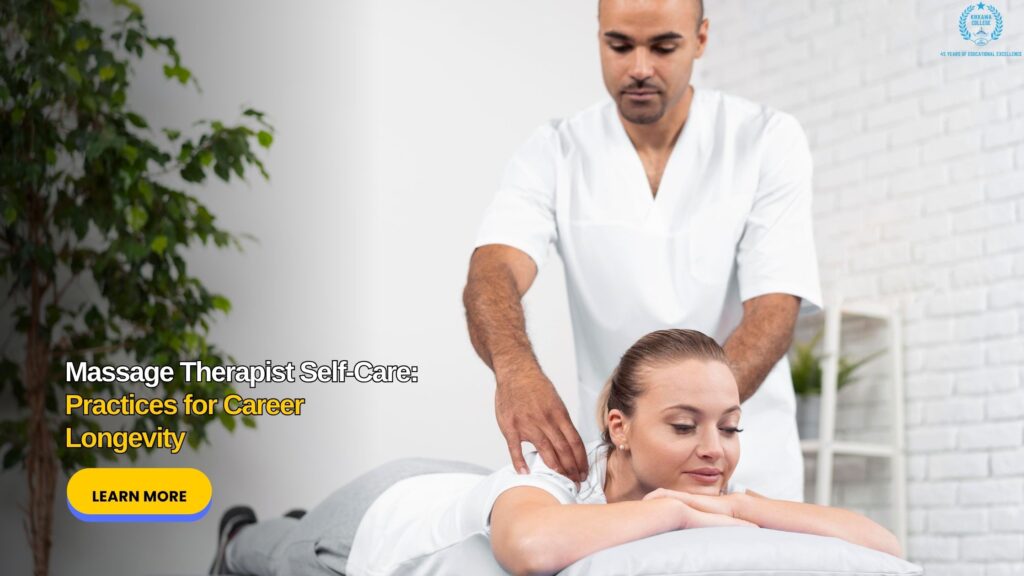Massage Therapist Self-Care
Massage therapy is a profoundly rewarding career, but it is also physically and emotionally demanding. Practitioners often focus so much on caring for others that they neglect their own needs. Learning sustainable self-care practices is not a luxury; it is a critical career skill for longevity and success.
Understanding the Physical Strain
The repetitive nature of the work can lead to musculoskeletal injuries for the therapist. Common issues include carpal tunnel syndrome, tendonitis, and chronic back and shoulder pain.
- Preventative Strategies: A good Massage Therapy Diploma program will emphasize proper body mechanics. This includes learning how to use your body weight instead of muscle strength, maintaining a stable stance, and adjusting the table height to avoid bending. Regular stretching and strength training are also essential.
Addressing the Emotional Load
Massage therapists are caregivers who often absorb the stress and emotional energy of their clients. This can lead to compassion fatigue, a state of emotional and physical exhaustion.
- Setting Energetic Boundaries: It’s crucial to develop techniques to decompress after work. This might involve a short meditation, a walk in nature, or a clear ritual that marks the end of your workday. Learning to be empathetic without taking on the client’s emotional burden is a key professional skill.
A Holistic Self-Care Plan
Your own wellness is your most professional tool. Therefore, you must prioritize your health as diligently as you do your clients’. This means scheduling breaks between sessions, staying hydrated, getting regular massages yourself, and taking mental health days when needed. By investing in your own wellbeing, you ensure you have the energy and vitality to provide the best possible care for years to come.






